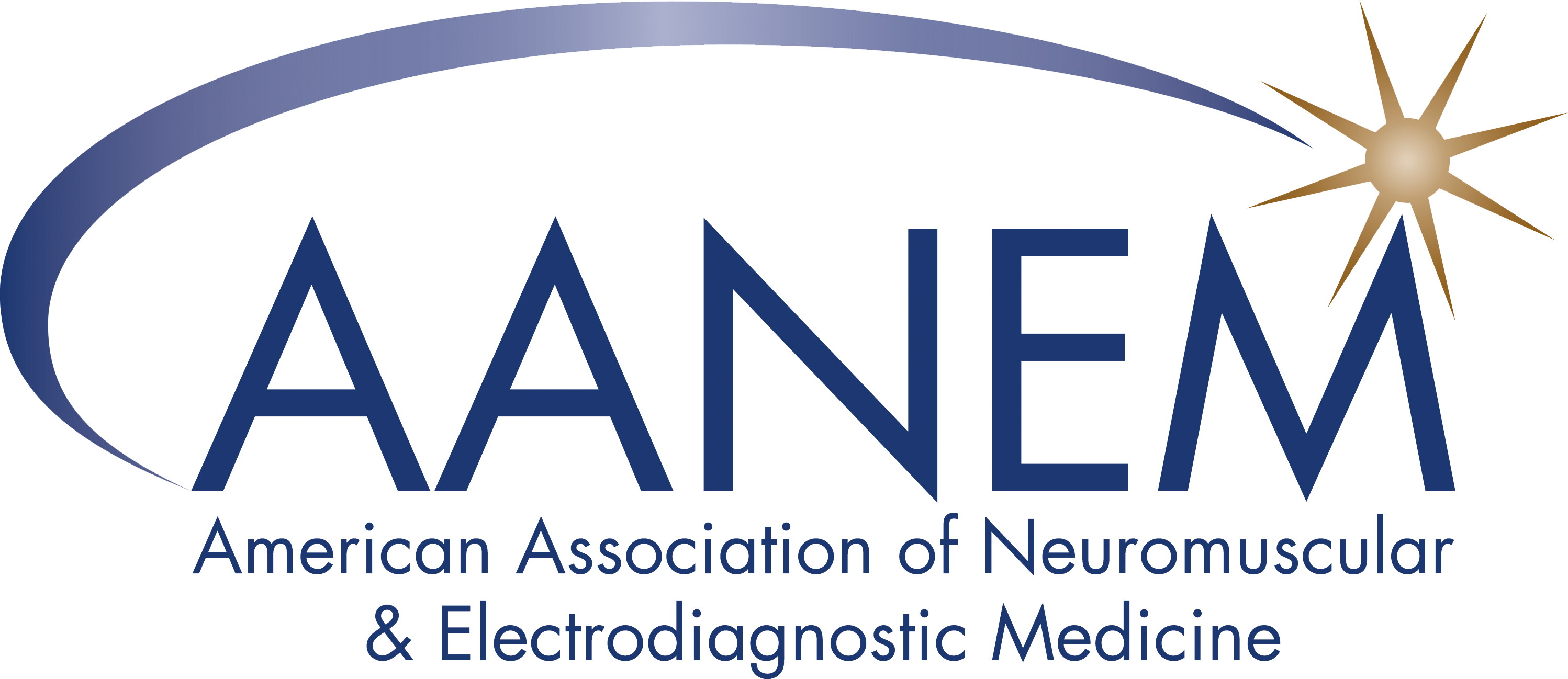Press and Media
View the latest AANEM Achievement Award winners, the American Neuromuscular Foundation (ANF) Abstract Award winners, and the latest AANEM news articles on News Express.
Frequently Asked Questions
Q: When will be content of abstracts be viewable, as opposed to just the titles?
A: The abstract content will be available at the annual meeting during the Poster Hall hours. We do not provide abstract presenter information or slides ahead of time. All available information can be found in the AANEM Abstract Guide online when it becomes available.
Q: How do I reach out to abstract or session presenters for an interview?
A: We do not offer member contact information. To connect with abstract or session presenters, review the AANEM Annual Meeting Program when available. Find the topics of interest and connect with the presenter after their lecture or during their abstract poster session time. Currently there is no interview option for virtual attendees.
Q: When can I share information?
A: The embargo on the abstracts themselves is lifted when they have been published in Muscle & Nerve and online in the AANEM Abstract Guide. However, the additional information beyond what is in the abstract itself is still embargoed.
AANEM requires information that goes beyond that which is contained within the abstract, e.g., the release of data not included in the abstract, discussion of the abstract done as part of a scientific presentation, etc. to be embargoed until the start of the annual meeting. Please see the Abstract Embargo Policy.
Q: Will the Abstract Award Reception feature the best posters?
A: The Abstract Award Reception is a social hour in honor of the abstract award winners where all authors, including award winners, will be available to discuss research.
Q: Original research is ONLY presented as posters, correct?
A: Yes - the research is presented in the Poster Hall via abstract posters.
Patient Safety: Impact of Antibiotics in Patients With Myasthenia Gravis
From the AANEM Quality and Patient Safety Committee
Neuromuscular junction transmission (NMT) has a high safety factor under normal circumstances. Conditions in which the NMT safety factor is impaired include myasthenia gravis (MG), hypocalcemia, hypermagnesemia, renal failure, infections, and concomitant use of drugs. Multiple medication classes have been implicated in exacerbating symptoms of MG. This include antibiotics (especially macrolides, aminoglycosides and fluoroquinolones) and other commonly prescribed drugs including beta-blockers, statins, magnesium, procainamide, etc. These medications can also precipitate MG crisis or unmask previously diagnosed MG. Awareness of a possibility of drug related MG exacerbation is very important as the interaction may result in severe morbidity and potentially a fatal outcome.
Question: Amongst the antibiotics used in MG patients, which one of the following has the risk of causing
severe MG exacerbation?
Explanation: Treatment of infections with antibiotics must be done cautiously in MG, given the risk of exacerbation with certain antibiotic classes. Documentation of anecdotal, observational and empirical data regarding specific medications led to the establishment of a list of Medications to be Avoided or Used Cautiously in MG patients (MAUC-MG). Infections were the most common factor (>50%) in MG exacerbations. MAUC- MG were factors in 19% of the recorded exacerbations and approximately 20% of exacerbations happen within 30 days of prescribing MAUC-MG. Of the antibiotics, macrolides, Fluroquinolones, and Aminoglycosides, are most well-recognized to precipitate or worsen MG, and should be avoided if possible. The US FDA has designated black box warning for using Fluroquinolones and Telithromycin. Due to limited report of side effects after Penicillin use in MG patients, it is one of first line antibiotics to treat infections in MG patients. Reported side effects after the use of cephalosporins, sulfa drugs, tetracyclines, polymyxin B and nitrofurantoin, clindamycin are rare or very few in the form of occasional case reports or in-vitro studies. These drugs can be administered safely to MG patients.
Authors: Banu Sundar, MD; Lee Murray, MD; and Charles Kassardjian, MD
Sources:
- Drugs That Induce or Cause Deterioration of Myasthenia Gravis: An Update
Shuja Sheikh, Usman Alvi, Betty Soliven and Kourosh Rezania J. Clin. Med. 2021, 10,
1537.
https://doi.org/10.3390/jcm10071537
- Factors associated with acute exacerbations of myasthenia gravis
Rohit Reddy Gummi Natalie Anna Kukulka Chelsea B. Deroche Raghav Govindarajan
Muscle & Nerve. 2019;60:693–699
DOI: 10.1002/mus.26689
- https://myasthenia.org/Portals/0/Cautionary_Drugs_2020.pdf
